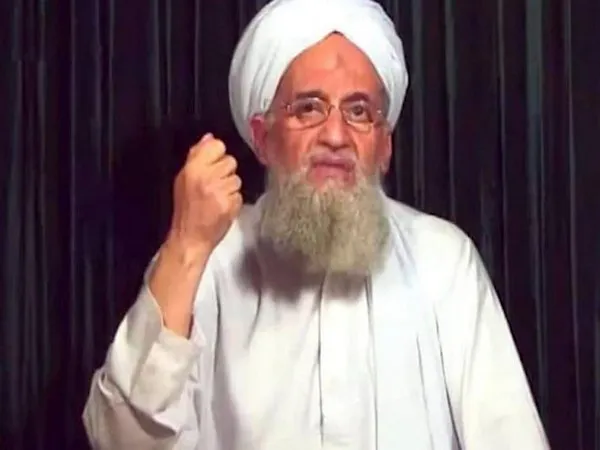Pakistan is treading cautiously over the killing of Al-Qaeda chief Ayman-al Zawahiri in Afghanistan by a US drone strike, and experts say Islamabad’s reference to the relevant international laws after the killing suggested that it indirectly opposed such operations in the name of country’s sovereignty and territorial integrity.
On Monday, US President Joe Biden revealed that their drone strike killed al-Zawahiri over the weekend. Al-Zawahiri was one of the world’s most wanted terrorists and a mastermind of the September 11, 2001 attacks, who was killed in a drone strike carried out by the US in the Afghan capital Kabul on Saturday.
During a weekly news briefing on Thursday, when Pakistan’s Foreign Office spokesperson Asim Iftikhar was asked about the use of Pakistani air space and intelligence cooperation between the two countries on taking out the al-Qaeda chief, the spokesperson denied the same, The Express Tribune reported.
“There is no evidence of this action having been undertaken using Pakistan’s airspace, so this is something that I can add to that,” Asim Iftikhar said.
Moreover, while responding to a question whether Pakistan supports such counter-terrorism operations, the spokesperson stressed that “Pakistan stands by countering terrorism in accordance with international law and the relevant UN resolutions”.
“There are various international obligations under these resolutions. Regarding al-Qaeda, I think it is clear that it is a terrorist entity, which is listed under the UN Security Council sanctions regime and states are under obligation to take actions that are prescribed by the UN Security Council,” he added clarifying Pakistan’s stance.
“As you know, Pakistan has in the past, taken resolute actions and supported the efforts of the international community in fighting terrorism and particularly, you know, some of the notable success against al-Qaeda was possible because of Pakistan’s role and contribution,” the spokesperson noted, as per the media outlet.
Careful commentary by Pakistan suggests that the country is discouraging the big powers to violate the sovereignty of other countries under the pretext of countering terrorism. Pakistan’s opposition to such an approach stems from its fears that other regional countries particularly India may use the same pretext to violate its territorial integrity and sovereignty.
It was because of this reason that Pakistan had strongly opposed and protested the US secret raid to kill Osama bin Laden in May 2011 in Abbottabad.
Ever since the killing of Al-Zawahiri there were questions asked about the role played by Pakistan or whether the US used its air space. Even the US officials were also not forthcoming in revealing the exact airspace it used for killing the Al-Qaeda chief.
All of this has led to speculations that Pakistan might be the country of choice that provided air space and possible critical intelligence.
The speculations became more intense because just 48 hours before the strike, a senior US general spoke to Army chief General Qamar Javed Bajwa.
Second Deputy Prime Minister of Taliban, Abdul Salam Hanafi on Wednesday slammed the US for the drone strike that killed Al-Qaeda chief Ayman al-Zawahiri. Second Deputy Prime Minister of Taliban, Abdul Salam Hanafi on Wednesday slammed the US for the drone strike that killed Al-Qaeda chief Ayman al-Zawahiri.
“On Saturday, at my direction, the United States successfully conducted an airstrike in Kabul, Afghanistan that killed the emir of al-Qa’ida: Ayman al-Zawahiri. Justice has been delivered and this terrorist leader is no more,” Biden said in a video address from the Blue Room Balcony at the White House.
“He will never again, never again, allow Afghanistan to become a terrorist safe haven because he is gone and we’re going to make sure that nothing else happens,” he added.
Zawahiri, an Egyptian surgeon was deeply involved in the planning of 9/11 and he also acted as Osama Bin Laden’s personal physician.

